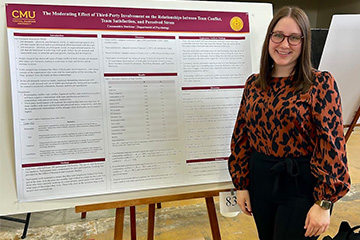Admitted student next steps
You’re in! Now, let’s take those next steps. It’s all in your personalized app portal.
Take your next stepsTrustees announce search for
Central Michigan University's 16th president


Find your program
From Engineering to Integrative Public Relations and so many fields between, CMU is the place to pursue your passion and prepare for your future. Find your perfect fit here.


Search our programs











